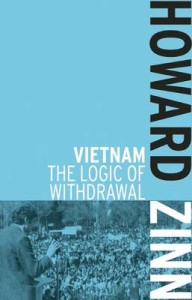 Of the many books that challenged the Vietnam War, Howard Zinn’s stands out as one of the best — and most influential.
Of the many books that challenged the Vietnam War, Howard Zinn’s stands out as one of the best — and most influential.
It helped sparked national debate on the war. It includes a powerful speech written by Zinn that President Johnson should have given to lay out the case for ending the war.
Includes a 2002 introduction by the author. [Publisher’s description.]
Howard Zinn’s Summary
This description of Vietnam: The Logic of Withdrawal was offered during Zinn’s testimony at the trial of the Camden 28.
Q) Howard, could you summarize for us your book Vietnam: The Logic of Withdrawal?
A) It’s a little book. I say this so you won’t get scared. You might think I am going to go through it page by page. I will try — when you ask people to summarize their own books, it is a very dangerous a thing to do. They always try to make it seem much better than it is. But I wrote this book after I came back from my trip to Japan. I had gone to Japan to lecture at about 13 different Japanese universities about Vietnam.
I was startled. This was in 1966, and it was in the light of the American escalation and before there was any big American movement against the war, and what fascinated me in Japan was that the Japanese people, wherever we went, at every place we went in Japan, and we traveled in Japan from the very north, Hokkaido, all the way down to, to Okinawa, the Japanese people seemed to be virtually unanimously against the war, against American policy in Vietnam. This was interesting because the Japanese government was sort of cuddling up to the American government and having all sorts of nice friendly relations with the government. The governments seemed to be getting along fine. But the Japanese people were unanimously or close to unanimously against American policy in Vietnam.
So I was interested in this because if the United States was telling the American people that if Vietnam became Communist, that would be a threat to the United States, and the United States was 10,000 miles away, here was Japan, Japan is much closer to Vietnam. How come the Japanese people didn’t feel that if Vietnam became Communist it would be a threat? The Japanese people did not seem to care if people became Communist or not. In fact, they said it probably would be better if Vietnam went that way, better than if she is controlled by some foreign power like France or the United States.
So I was curious. The Japanese weren’t troubled about that. Americans were troubled. So I thought that I would start writing about that and say, here is a new perspective on the war. Here is a new way of looking at it.
ISBN: 9781608463053 | Haymarket Books

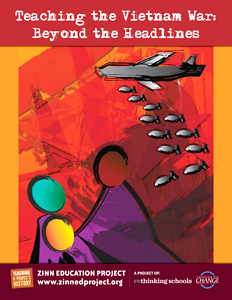
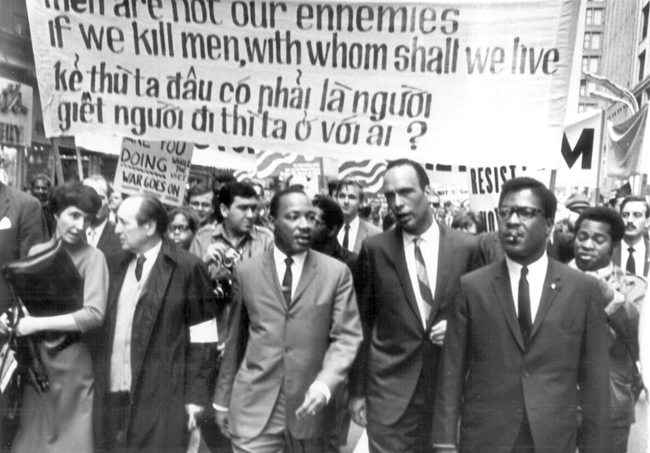

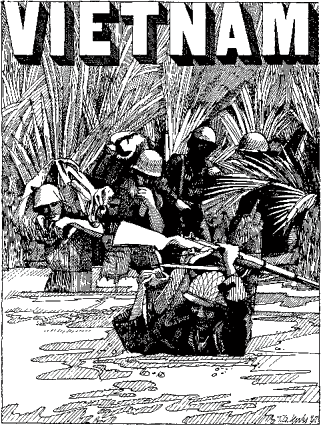



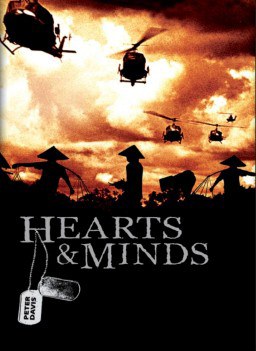
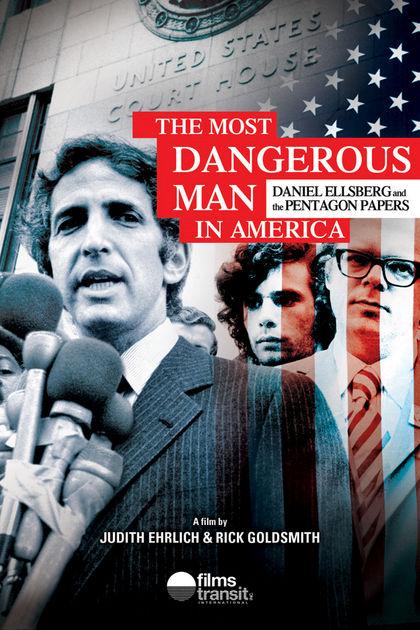
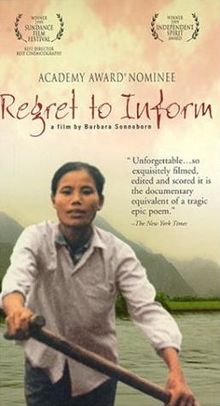
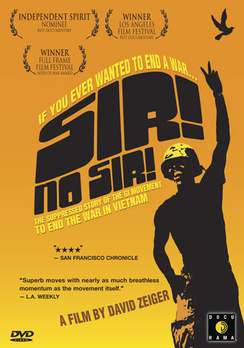

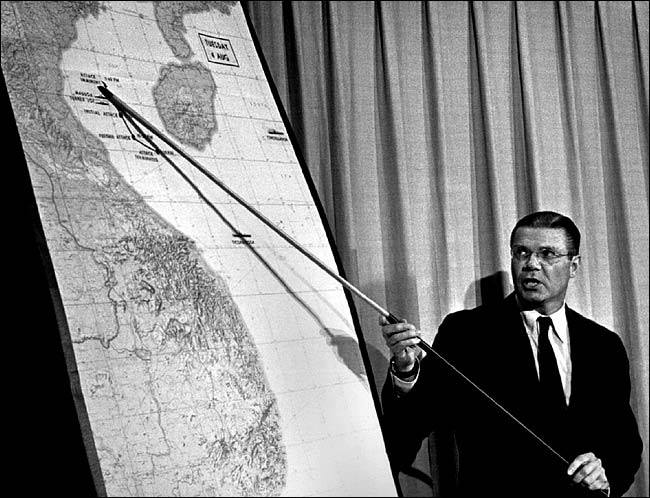

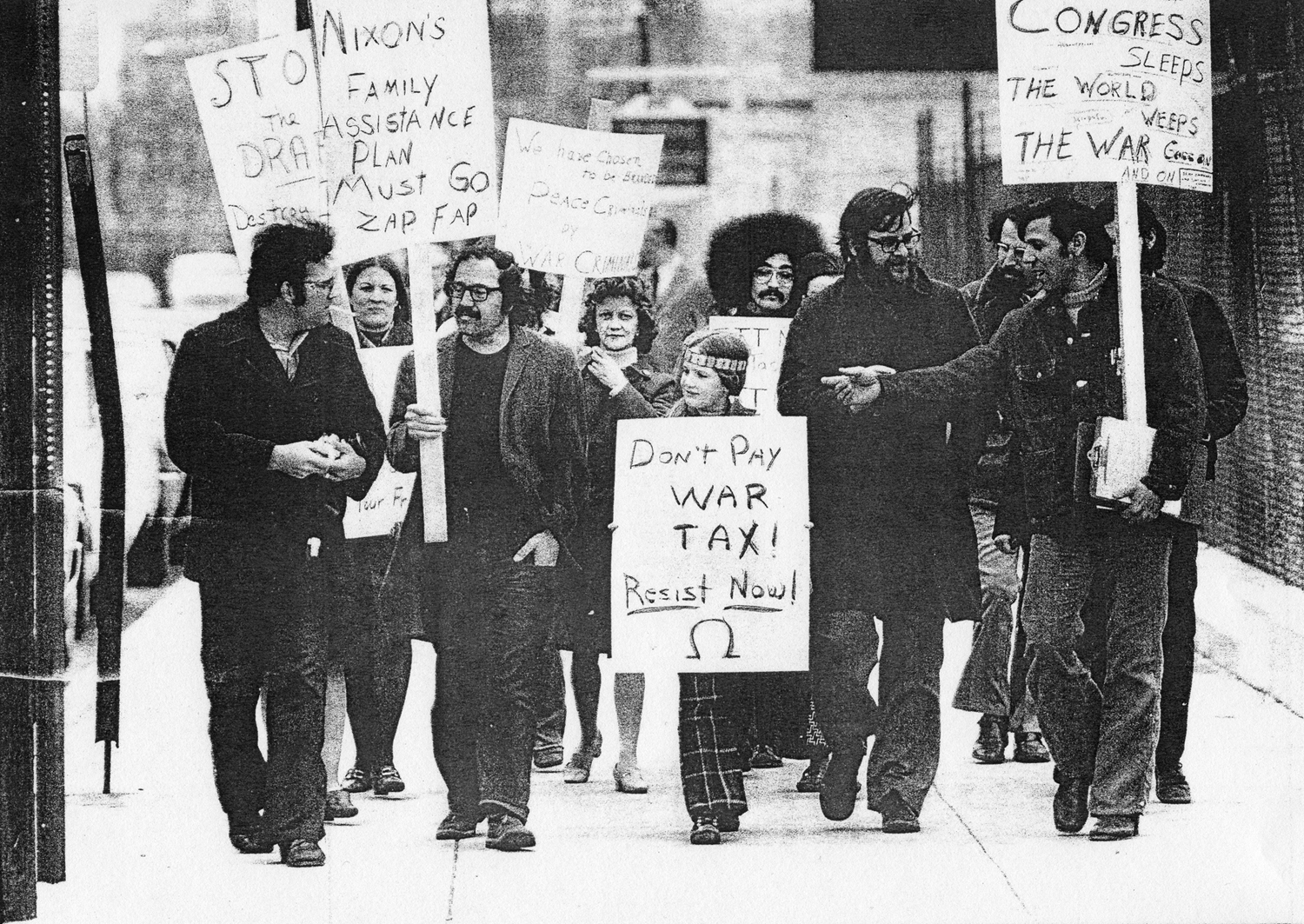
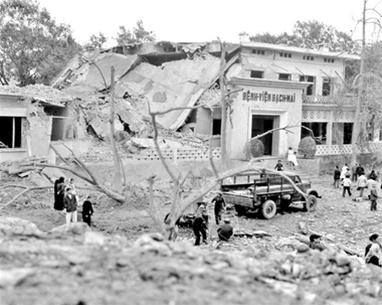






Twitter
Google plus
LinkedIn